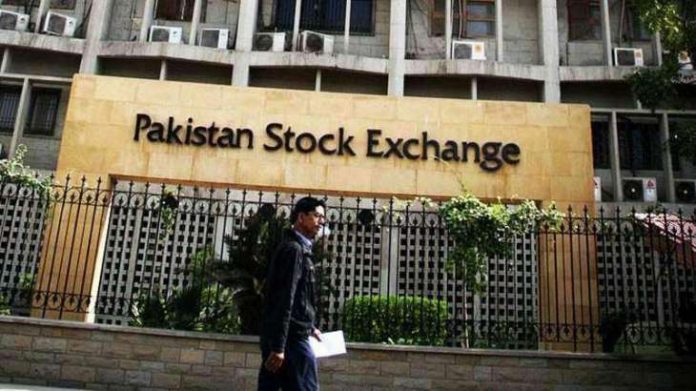KARACHI: The Pakistan Stock Exchange (PSX) has formally asked the government to reduce the capital gains tax (CGT), in a statement released on Monday.
The exchange recommended that the CGT rate be brought down to 10pc for short term investments, and be made nil for long term investments.
In making this proposal, the PSX said it had the support of the Securities & Exchange Commission of Pakistan (SECP) and Pakistan Stockbrokers Association (PSA).
Broadly speaking, a CGT is a tax on the difference between an asset’s sale price, and the original purchase price. According to the Income Tax Ordinance 2001, a CGT can be charged on the disposal of securities, such a share of a public company, a modaraba certificate, or debt securities.
For the 2019-2020 tax year, if a security’s holding period was less than one year, the rate was 15pc. If security was bought before July 1, 2016, and the holding period was between one to two years, the rate was 12.5pc. If the security was bought between 2013 and 2016, and had a holding period of more than two years, the rate was 7.5pc. If the security was bought before July 1, 2013, the rate was zero per cent.
The PSX claimed that the CGT rate is one of the highest in the region, and that the tax’s structure needs to be rationalized in line with international best practice.
It should be noted though, that the CGT rate in South Asian countries is more or less in the same ballpark range as Pakistan’s CGT. India’s CGT ranges from 10pc to 20pc, depending on the security holding period, while Bangladesh’s CGT stands at 15pc. However, Sri Lanka’s CGT stands at 10pc on property, while it is nil for capital gains from shares.
According to the exchange, the current structure in Pakistan is inefficient as the only Rs.1.3 billion was collected as CGT last year. However, if the proposed changes to the CGT were to be followed, the PSX says it would be a “significant and welcome headline change which will attract new domestic and international investors to Pakistan’s capital markets, without any negative revenue impact.”
In its statement, the PSX explained that the current CGT structure was in fact discriminating against Pakistan’s capital markets.
Currently, Pakistan’s capital markets are fully documented. The exchange said it was important to have a tax structure that attracted funds from the informal and undocumented part of the economy, towards the documented capital markets.
“This will help create new taxpayers and increase Pakistan’s low savings rate, one of the critical structural imbalances in Pakistan’s economy.” said the exchange.
However, the PSX said a review of CGT on listed securities has now become even more urgent in light of the changes made in the CGT structure on real estate.
In the most recent Federal Budget announced on June 12, the government had made some incremental changes on the CGT charged on immovable property (where the tax rate ranges from 5pc to 20pc, depending on the gain value).
For instance, the government exempted capital gains made on property held for four years, as opposed to the earlier eight years. It also tweaked how it calculated the holding period of capital gains.
This difference in the CGT structures “creates a tax-driven distortion between the capital markets and real estate, and discriminates against the capital markets, which are fully documented,” the statement read.
The PSX said that this goes against “all logic, fairness and the stated policy of GoP and FBR”, which is to encourage documentation of the economy. It will also impact other associated industries, including mutual funds, pensions and insurance.
Instead, the PSX believes that through the rationalization of CGT, local and foreign investors will be attracted to the stock market and more people will be included in the documented economy and tax net.
However, if the CGT aspect is not addressed, the exchange said there is a greater likelihood that people will continue to be attracted to the undocumented asset classes. This will have a spillover effect, whereby domestic savings will not be channelled into the economy and new taxpayers will not be added into the tax net through the capital markets.
This is not the first time the PSX has suggested a change to the CGT. In early May, the exchange had requested the government to eliminate or reduce the CGT for the next two years, as part of its broader proposals for the fiscal year 2020-21 budget.
The PSX made its own displeasure with the budgetary announcements known, by including this passage in its statement on the CGT: “It should also be noted that since the announcement of the budget, the stock market has fallen by 1390 points, which is a 4pc decline, highlighting the negative sentiment towards the budgetary announcements.




